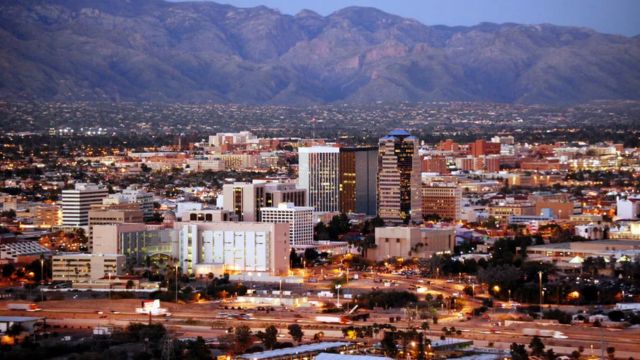Tucson, the second-largest city in Arizona, is renowned for its abundant sunshine, picturesque mountains, and diverse cultural scene. However, according to a recent report by Florida Property Management, Tucson is flagged as one of the least content cities in the United States. Here are some reasons behind Tucson’s lower happiness ranking:
Economic Challenges:
One of the primary determinants influencing a city’s happiness is its economic landscape. Tucson grapples with a median household income of $41,625, notably lower than the national average of $62,843 and the state average of $56,581.
The city also contends with a substantial poverty rate of 24.4%, almost double the national average of 12.3% and the state average of 13.5%. Additionally, Tucson reports a high unemployment rate of 7.5%, surpassing the national average of 6% and the state average of 4.7%. These financial hardships make it challenging for Tucson residents to achieve a decent standard of living and pursue their aspirations.
Crime and Violence Concerns:
Another pivotal factor impacting a city’s happiness is its crime and violence rates. Tucson exhibits a high crime rate of 42.9 incidents per 1,000 residents, surpassing the national average of 22.0 and the state average of 23.9. The city also reports an elevated violent crime rate of 8.2 incidents per 1,000 residents, exceeding the national average of 3.7 and the state average of 4.7. The heightened risk of robbery, assault, rape, or murder in Tucson contributes to an atmosphere of fear, insecurity, and diminished community trust.
Community and Environmental Quality:
The quality of a city’s community and environment significantly influences overall happiness. Tucson scores a mere 28.83 out of 100, falling below the national average of 50.00 and the state average of 44.17. This score reflects Tucson’s performance in various indicators such as social engagement, civic participation, environmental quality, and leisure activities.
With a voter turnout rate of 53.4%, below the national average of 61.4% and the state average of 55.5%, Tucson displays a lower level of civic engagement. Additionally, the city reports a subpar air quality index of 58, exceeding the national average of 50 and the state average of 49. This signifies increased air pollution and smog, potentially impacting the health and mood of the residents. Tucson also lacks attractions and amenities, limiting options for entertainment and recreation.
In Conclusion:
Despite its rich history, culture, and diversity, Tucson is identified as one of the less happy cities in America according to a thorough study by Florida Property Management. The city faces economic hardships, heightened crime rates, and challenges in community and environmental aspects, all of which contribute to a negative impact on residents’ happiness and well-being. It’s crucial to acknowledge that happiness is subjective, and while Tucson faces numerous challenges, it also possesses the potential to overcome them and enhance the quality of life for its inhabitants.

